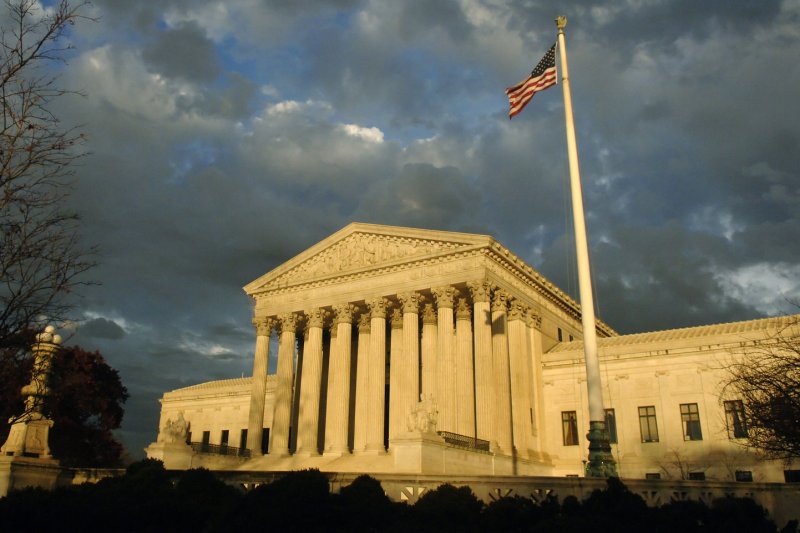The U.S. Supreme Court building is seen in Washington. (UPI Photo/Kevin Dietsch) |
License Photo
WASHINGTON, Nov. 6 (UPI) -- The U.S. Supreme Court heard argument Wednesday on the constitutionality of opening government meetings with prayer, but the justices seemed unsure how to rule.
Some justices expressed doubt on whether the courts should decide whether the content of prayers at such meetings passes muster.
Justice Anthony Kennedy, a key swing vote on the nine-member court, questioned whether judges or officials should decide what prayers are acceptable, The New York Times reported. Kennedy said that would "involve the state very heavily in the censorship and the approval and non-approval of prayer."
Chief Justice John Roberts also appeared reluctant to rule on what type of prayer is acceptable, the Times said.
SCOTUSblog.com reported the case seemed to hinge on the fate of a 30-year high court precedent allowing prayer in state legislatures. The justices could use that precedent, or come up with some new formula as to what is acceptable.
A town board in upstate New York, a suburb of Rochester, has opened its meetings for years with a Christian prayer led by a Christian cleric. But a federal appeals court ruled the prayers unconstitutional, finding they endorse Christianity.
A lawyer for the Town of Greece argued in the Supreme Court that the prayers are constitutional, citing the high court's 1983 ruling in Marsh vs. Chambers. The 6-3 Marsh ruling said prayers at the beginning of sessions at the Nebraska Legislature, or any state legislature, are constitutional.
A number of powerful figures are supporting the town's case, including Republican members of Congress and the Obama administration.
Eighteen states have filed a friend-of-the-court brief in support of the town's argument -- Indiana, joined by Alabama, Arizona, Arkansas, Colorado, Florida, Idaho, Kansas, Michigan, Mississippi, Montana, Nebraska, New Mexico, Oklahoma, South Carolina, Texas, Utah and Virginia.
The town board practice was challenged by two women who said anyone who wanted to participate in government meetings was subjected to Christian proselytizing.
The Supreme Court should hand down a ruling in the next few months.















